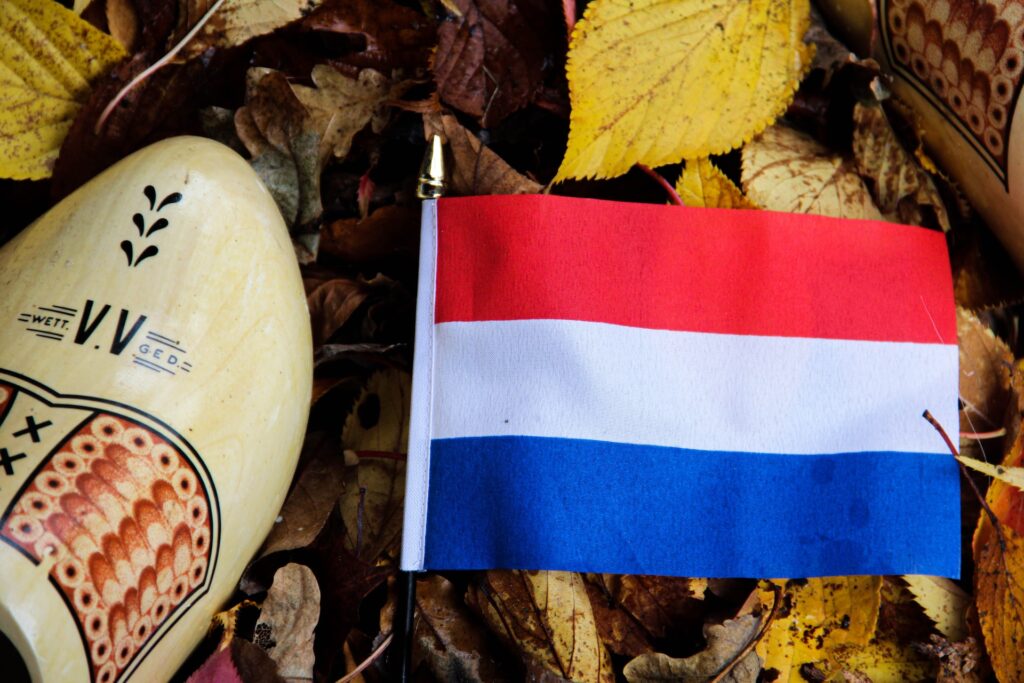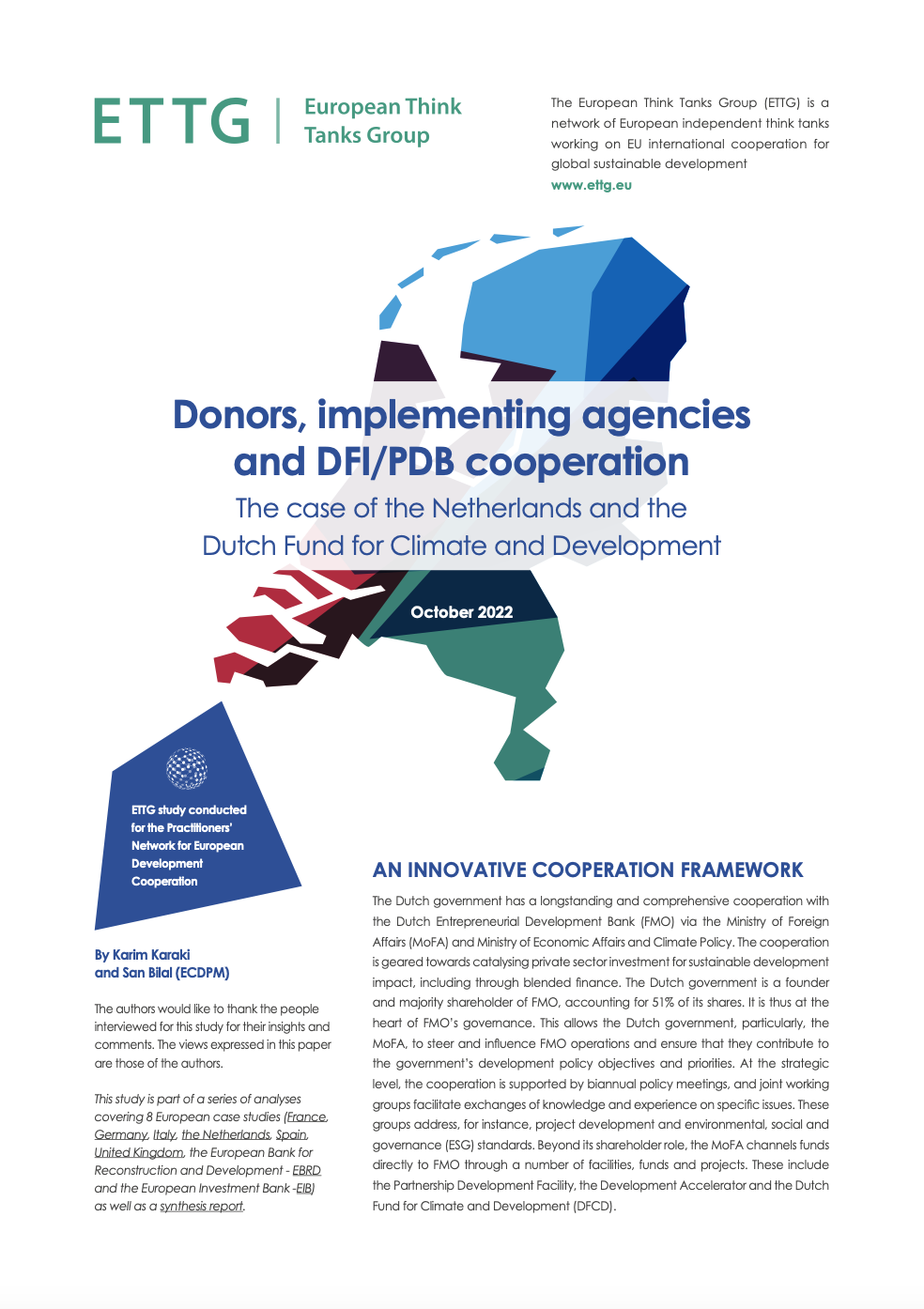
The Dutch government has a longstanding and comprehensive cooperation with the Dutch Entrepreneurial Development Bank (FMO) via the Ministry of Foreign Affairs (MoFA) and Ministry of Economic Affairs and Climate Policy. The cooperation is geared towards catalysing private sector investment for sustainable development impact, including through blended finance. The Dutch government is a founder and majority shareholder of FMO, accounting for 51% of its shares. It is thus at the heart of FMO’s governance. This allows the Dutch government, particularly, the MoFA, to steer and influence FMO operations and ensure that they contribute to the government’s development policy objectives and priorities. At the strategic level, the cooperation is supported by biannual policy meetings, and joint working groups facilitate exchanges of knowledge and experience on specific issues. These groups address, for instance, project development and environmental, social and governance (ESG) standards. Beyond its shareholder role, the MoFA channels funds directly to FMO through a number of facilities, funds and projects. These include the Partnership Development Facility, the Development Accelerator and the Dutch Fund for Climate and Development (DFCD).
Read the case study here.
Authors: Karim Karaki and San Bilal (ECDPM)
The authors would like to thank the people interviewed for this study for their insights and comments.
ETTG study conducted for the Practitioners’ Network for European Development Cooperation.
This study is part of a series of analyses covering 8 European case studies (Germany, France, United Kingdom, Spain, Italy, the European Investment Bank -EIB and the European Bank for Reconstruction and Development – EBRD) as well as a synthesis report
Presentation of the analysis report here.
Photo by Denise Jans on Unsplash.
The views are those of the authors and not necessarily those of ETTG.




